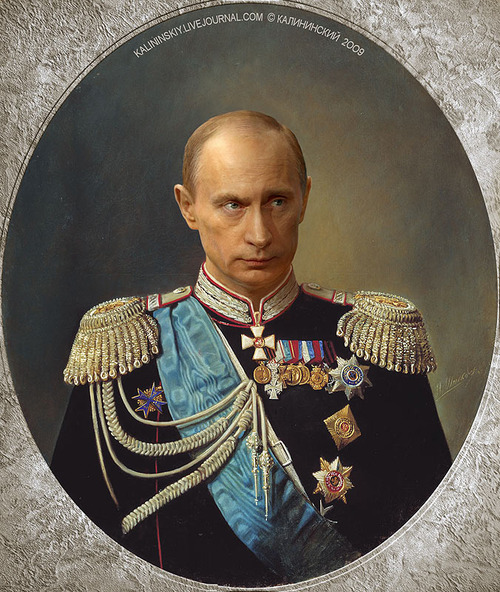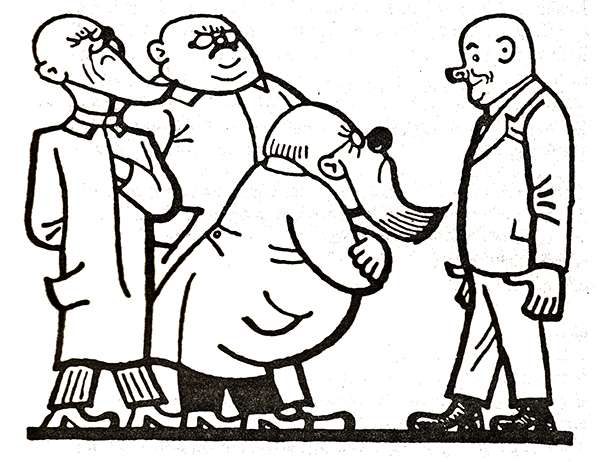
By
Bill Lind*
World War I ended with a global pandemic. Has the next world war begun with one? I pray not, but no historian can look upon the war in Ukraine and not see the ghost of 1914 rising wraithlike from it – a ghost which, I fear, bears a striking resemblance to Conrad. When was Przemsyl last in the news?
When we think back to World War I, to its origins, its course and its consequences, the parallels are frightening. The first is that, in 1914, no one expected war or wanted war – at least a general European war. Kaiser Wilhelm II certainly did not. On the contrary: as soon as he realized, too late, where events were leading, he made desperate efforts to head them off. He ordered a cable sent to Vienna telling Austria to take Belgrade and then stop, but the German Foreign Office did not send it. Tsar Nicholas only approved the order for mobilization with great reluctance; his war and Foreign Ministers acted before he could change his mind. The Kaiser even halted his army on the Belgian frontier when the British Foreign Secretary hinted Britain might stay out – but then Grey pushed the British cabinet in.
Are events today again running away from those who seek de-escalation? Russia expected a quick victory (like everyone in 1914), but now finds herself bogged down in a stalemate with no clear exit. As wars go on, they tend to spread. The West is upping the ante in the help it is extending to Ukraine. At what point does Russia start hitting Western weapons shipments while they are still on NATO’s soil? How long can China remain on the fence when Russia is her principal ally? If Russia uses chemical weapons in urban combat, does the U.S. wrongly declare them “Weapons of Mass Destruction” and thereby open the nuclear Pandora’s box? There are a lot of ways for this conflict to get bigger, fast.
The parallels do not end with the merely military. In 1914, the world had a global economy. Only in the last decade did the value of global trade reach 1914 levels, as a percentage of the global economy. But even before Russia invaded Ukraine, America’s use of economic sanctions as weapons was swiftly undermining Globalism, as did the Coronapanic and its effects on global supply chains. Now, every country is striving to “re-shore” whatever it can, in a security-driven race towards autarky.
World War I ended with the destruction of three great, Christian, conservative empires, the Russian, the German, and the Austro-Hungarian, with ongoing consequences for Christendom. What states may fail as a result of the war in Ukraine and its potential expansion? Then, the old empires reformed as republics. But now, we live in a time when the state is in decline and non-state entities are rising. Fourth Generation War theory says that a defeated Russia might break up still further, as the Soviet Union did, to become a vast stateless region with lots of nukes and delivery systems floating around.
What then, Russophobes, which is to say the Blob, the neocons, and the neo-libs? You destroyed states such as Iraq, Syria, and Libya and have not been able to put them back together. What is your plan for a stateless region running from the Polish border to the Pacific Ocean?
The political establishments in Washington and the EU would be wise to remember that World War I brought a wholesale collapse of establishments. The monarchies in Russia, Austria, and Germany were swept away, replaced in the first by Bolshevism and the latter two by socialism. Shortly after the war, in 1922, the Italian political establishment was replaced by Fascism, and in 1933 in Germany by National Socialism. Do the cultural Marxist elites that now rule in Washington and most European capitals think they are likely to survive a cataclysm they created? (I promise them their replacements will come from the right, not the left.)
If those establishments want to survive, they need now to bend every effort to de-escalate the war in Ukraine, to build a golden bridge Russia can withdraw over without humiliation, one where the Kremlin can claim some sort of victory (i.e., Ukraine will never join NATO and Crimea is recognized as Russian) and all Western sanctions are quickly removed. The U.S., the E.U., and Russia then join to rebuild Ukraine.
In 1914, the post-1815 European order sleepwalked itself into a world war that swept it from the board. In 2022, the post-1945 world order is on the verge of doing the same.
* William S. Lind is a long-time American defense analyst and social critic. This article has been previously published in Traditional.Right.


